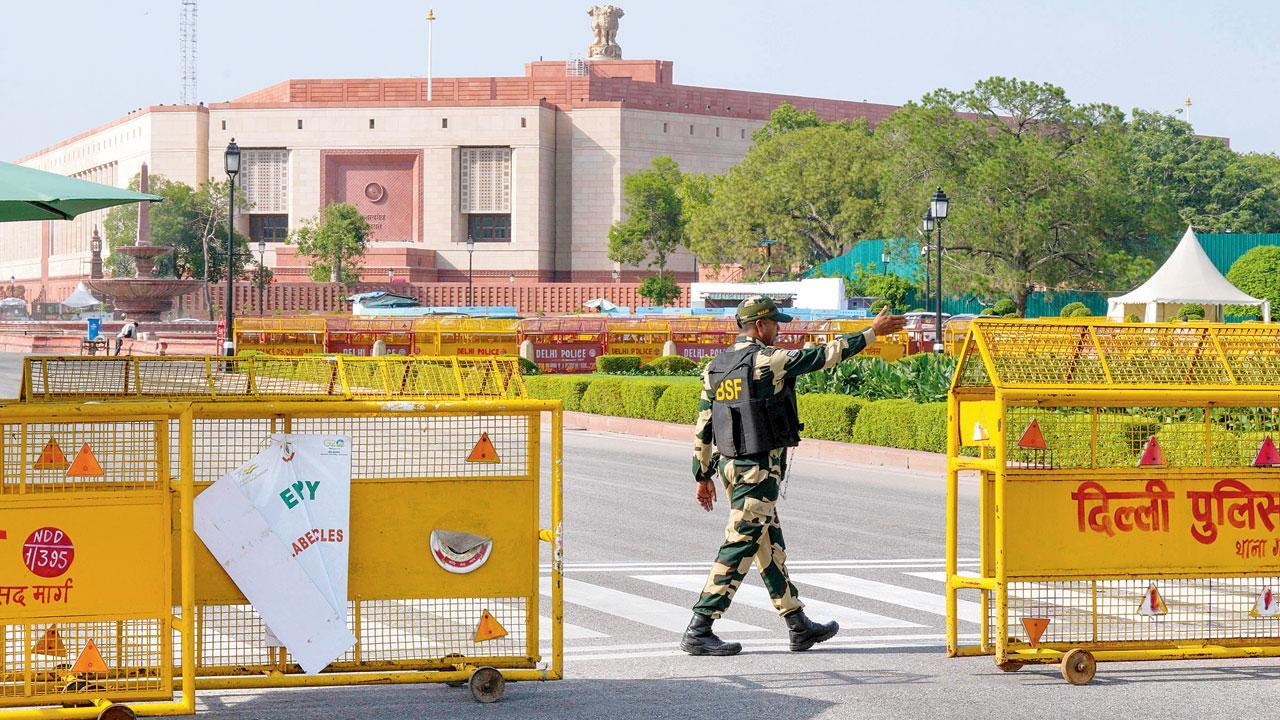New democracy through Brecht’s lens
Updated On: 29 May, 2023 07:27 AM IST | Mumbai | Ajaz Ashraf
The BJP, which strives to trip governments in Opp-ruled states, seems to be heeding playwright’s notion of dissolving the people

The new Parliament building on the eve of its inauguration by Prime Minister Narendra Modi, in New Delhi, on, May 27. Pic/PTI
 Prime Minister Narendra Modi’s inauguration of the new Parliament building reminded me of playwright Bertolt Brecht and his poem The Solution. Brecht fled Hitler’s Germany, and spent some years of his exile in the United States. At the end of World War II, he settled down in the communist East Germany, which feted him for the Marxist ideology his plays aesthetically articulated.
Prime Minister Narendra Modi’s inauguration of the new Parliament building reminded me of playwright Bertolt Brecht and his poem The Solution. Brecht fled Hitler’s Germany, and spent some years of his exile in the United States. At the end of World War II, he settled down in the communist East Germany, which feted him for the Marxist ideology his plays aesthetically articulated.
In June 1953, the communist government ordered workers to increase their output by 10 per cent at the same wages. In protest, on June 17, thousands upon thousands gathered on East Berlin’s Stalinallee, or Stalin Avenue. Tanks were deployed to crush the agitation. Brecht was criticised for his silence on the repression. Three years after his death, in 1956, a German newspaper published The Solution, a satirical poem Brecht had not made public.



